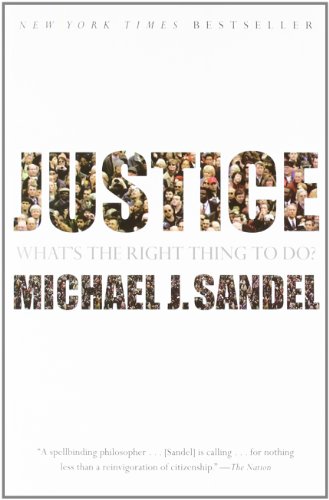
“For Michael Sandel, justice is not a spectator sport,” The Nation’s reviewer of Justice remarked. In his acclaimed book—based on his legendary Harvard course—Sandel offers a rare education in thinking through the complicated issues and controversies we face in public life today. It has emerged as a most lucid and engaging guide for those who yearn for a more robust and thoughtful public discourse. “In terms we can all understand,” wrote Jonathan Rauch in The New York Times, Justice “confronts us with the concepts that lurk . . . beneath our conflicts.”

The Best Book Ever for Practical Morality This book will not satisfy the elite of hair-splitting moral philosophers, but to my mind it is the best book I have ever seen explaining moral philosophy to neophytes. The examples come mostly from contemporary American social life and many are well-known in the literature. But many were new to me, and included some of the most morally conflictual issues I have ever encountered. I just cannot imagine a better way to present the content of modern moral philosophy to the world…
Blind Justice? – an eye-opening discussion Michael Sandel’s discussion of Justice begins and ends with what he believes are the three main views on what Justice is or rather what it should promote: the maximum good to the largest possible number of people, individual freedom or encourage the collective virtues and the development of harmonious and enlightened communities (who wouldn’t?)?.Sandel’s discussion, based on a popular course he teaches at Harvard, mixes a pretty good dose of ‘history of political philosophy’ with an…